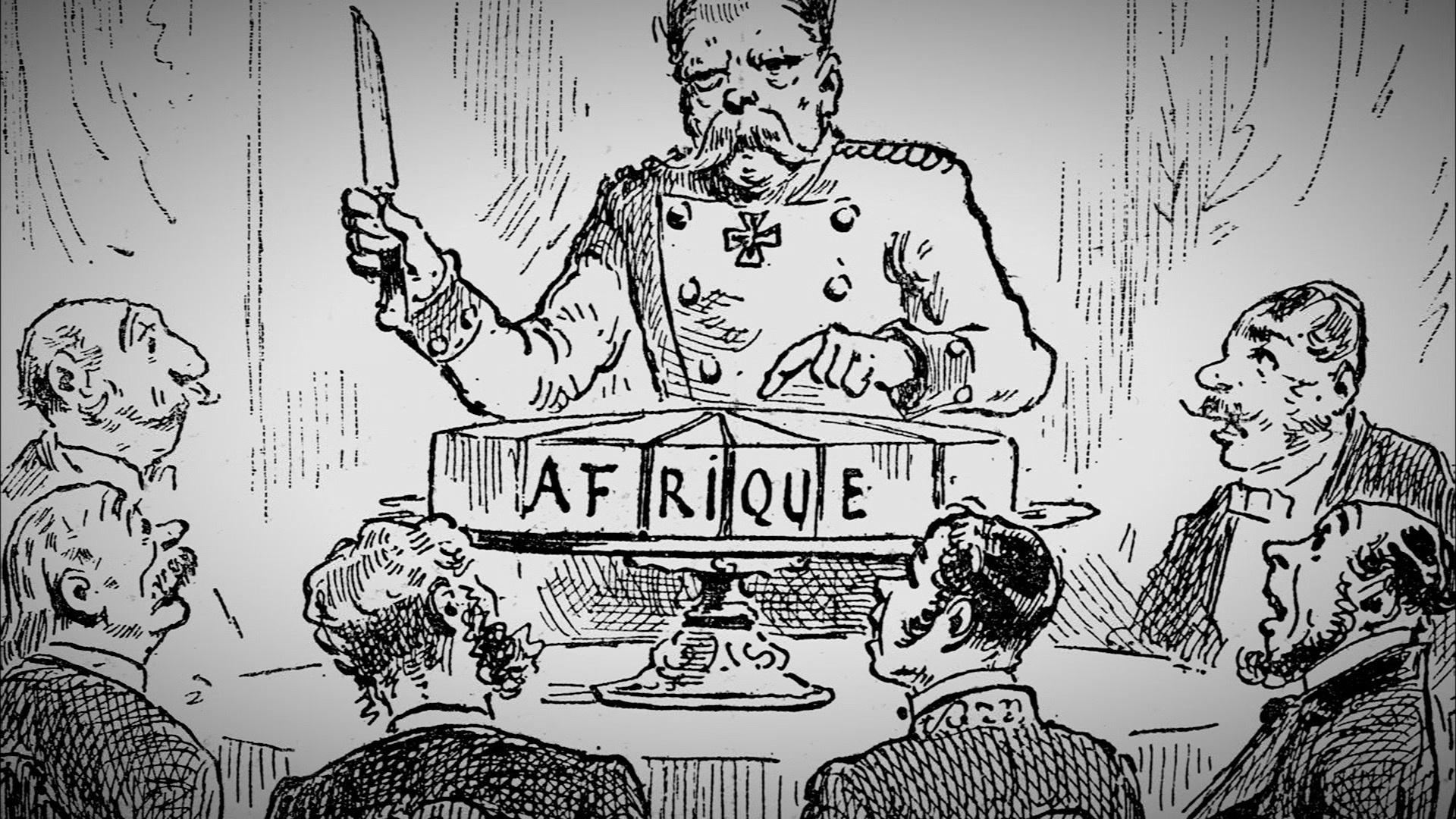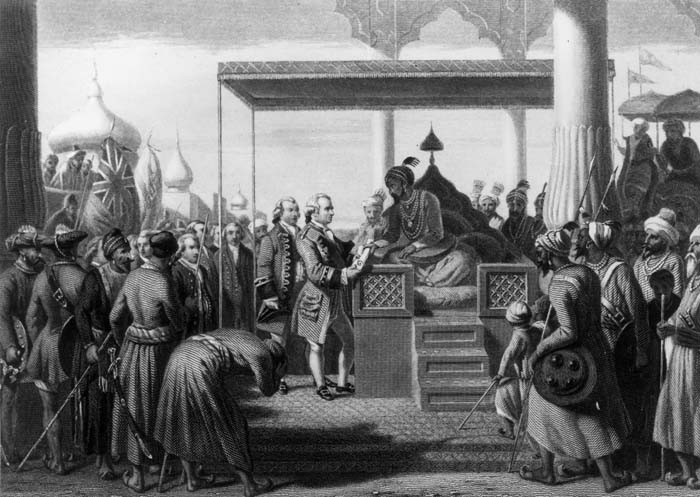 Factories in Britain, c. 1800
Factories in Britain, c. 1800
 Berlin Conference, 1885
Berlin Conference, 1885
 Imperialism in India, c. 1850
Imperialism in India, c. 1850
 King Leopold 11 of Belgium
King Leopold 11 of Belgium
The Industrial Revolution in Europe gave Europeans a technological advantage to
the rest of the world that they quickly used to assert dominance in Asia and Africa.
Colonies created during this period led to vast overseas empires that increased
the power of European countries. Africa was split between European powers in 1885
during the Berlin Conference without input from existing African powers. "Scientific"
theories such as social darwinism justified imperialism by claiming other races
were inferior to Europeans (with no scientific basis). Imperialism created ethnic
tensions that spread nationalism and support for nation-states composed of one
ethnicity.
Prelude
In the 18th and 19th centuries, the Industrial Revolution was the increased production
of machine-made goods. New technologies such as the steam engine and spinning jenny
helped European countries such as Great Britain become industrial world powers.
Faster transportation and better weapons allowed Europe to colonize areas in Asia
and Africa.
Scramble for Africa & Berlin Conference
One of the first areas of the world European countries turned their eyes
towards was Africa. In what came to be known as the Scramble for Africa,
nearly all of Africa was split between European colonial powers. In the
Berlin Conference of 1885, representatives from 14 different countries split
up Africa; no African leaders were present. France received most of the West
Sahara as well as Madagascar, although most of the territory was strategically
unimportant. Britain's notable colonies included Egypt and South Africa,
while Belgium received the Congo and Germany had few territories. Ethiopia
was the only area that remained free.
Imperialism in Asia
The most prominent example of imperialism in Asia was India. Britain had control
of India in the 1800's but formally made it a part of their empire in 1857
following a revolt by Indian soldiers. Although not fully colonized, China
was also forced to give up territories and open ports to British trade after
the Opium Wars in 1842.
Social Darwinism & Treatment of Natives
One prominent political thought during this time was social darwinism. It stated
(without much scientific evidence) that certain races were physically and mentally
inferior to others and that "greater" races should colonize "lesser" ones.
Although many scientists disapproved of social darwinism-especially Charles
Darwin, who did not agree with it-social darwinism was used to justify European
imperialism. Natives in colonized countries were often treated as second-class
citizens and denied positions of power. For example, in the Belgian Congo, King
Leopold IIcommitted atrocities that drastically reduced the native population.
 Factories in Britain, c. 1800
Factories in Britain, c. 1800
 Berlin Conference, 1885
Berlin Conference, 1885
 Imperialism in India, c. 1850
Imperialism in India, c. 1850
 King Leopold 11 of Belgium
King Leopold 11 of Belgium